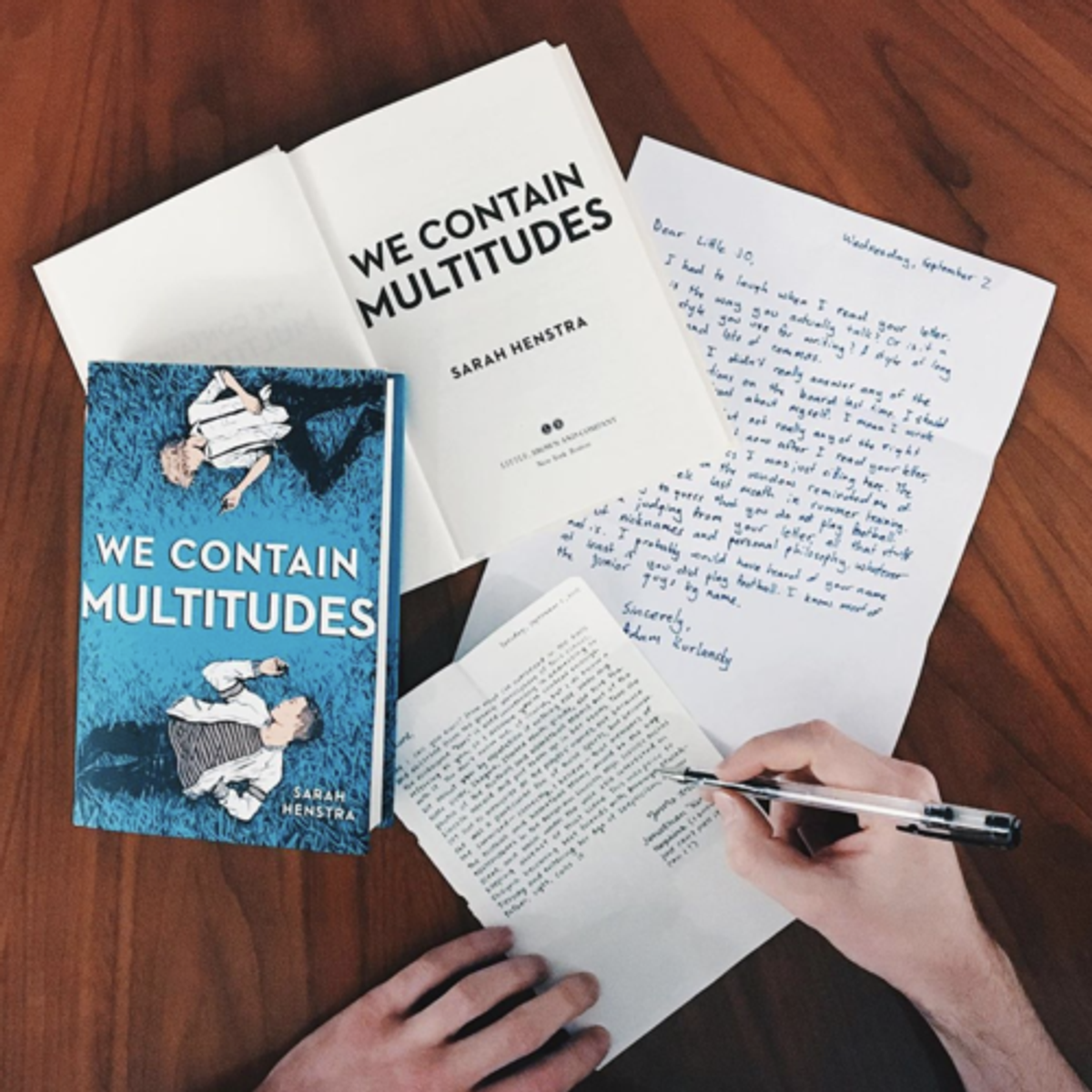Parallel - Student News

From the Editor
We’ve already made it halfway through the year and have just a little more to go. The transition from online learning back to on campus has been relatively smooth so far and as we near the end of Term 2, we can only hope it remains an easy path to Term 3.
Our staff have modified the school so that social distancing is still as possible as it can be in a school with 800 students and narrow corridors. Please be mindful and follow the instructions placed around the school even if you have to walk to the other end of the school to use the ‘UP’ stairs.
All in all, we hope you enjoy this edition and reach out to us with more ideas for Parallel. We would love to hear what the student body wish to see from Parallel. To get your ideas to us, please message either myself, Ruth Jarra, or Ms Slywka on Teams.
Stay safe,
Ruth Jarra
Editor-in-chief
A review of The Truth About Keeping Secrets, a novel by Savannah Brown
Despite the multitude of criticisms surrounding young adult novels, I had faith in The Truth About Keeping Secrets (TTAKS). Author Savannah Brown has been considerably successful in her Youtube career, gaining her following through spoken word poetry. Brown’s poetry is often vulnerable, emotional, and hard-hitting. It’s garnered attention for starting conversations about crucial topics like mental illness and feminism. It’s inspired other poets. It’s inspired me.
TTAKS on the other hand. TTAKS didn’t feel close to any of that.
The basic premise of the story is centred around 17-year-old Sydney as she copes with the death of her father. Sydney finds his death suspicious - after all, why would the small town’s only psychiatrist, knower of secrets and private matters, die so suddenly? Mix in threatening anonymous texts, and resident popular girl, June, and there you have it: all the ingredients for a classic high school thriller.
Let’s start with the good: Brown’s portrayal of grief was uncomfortably realistic. This is a story that gets very intimate with death. Sydney’s coping mechanisms, while extremely unhealthy, were human. Her monologues didn’t feel like the typical melodrama that saturates the young adult genre. Sydney’s mourning was well veiled in dry humour and half-hearted attempts at witty pessimism. So when the grief finally did seep through, when Sydney finally did let herself go, it felt grounded. It felt real.
Most of my criticisms lie in the thriller aspect of the novel. Yes, it was marketed as a young adult thriller, and yes, there were elements of a thriller in it. Despite all of that, it just didn’t feel like one. June was demystified about three semi-awkward conversations later, and the ‘threatening’ texts felt mildly concerning at best. Not that they weren’t an issue; it’s just that the characters didn’t seem to care. It’s hard to believe a mother would so easily ignore death threats aimed at her own daughter, whilst said daughter only spirals further into paranoia.
And the twist: anticlimactic, bland, and worst of all, guessable. It doesn’t take long to figure out who the anonymous texter is when the foreshadowing feels like you’re being spoon fed out-of-character moments, and the winding monologues practically scream out that something isn’t right. Sorry to disappoint, but there wasn’t a red herring in sight.
TTAKS did what it cared about doing, and then some more about what it didn’t. The story is emotional while it lasts. Unfortunately, it didn’t last long enough.
(A content warning: homophobia, off-page emotional, sexual, and physical abuse, behaviour that could be considered self-harm, and suicide)
By Neha De Alwis
(Views expressed in this review are individual opinion and do not reflect the newsletter as a whole)
Dear Earth, with love, from Mars, a correspondence
My dearest Mars,
You are right, I am enjoying autumn, it reminds me that nothing is here forever. At least I can measure time with these letters. And yes, oxygen is still touch and go for now, but it’s stable. How about you? Do you still sing in the shower? Do you still need to strain to hear your offkey key notes over the rush of water or it is dead silent up there? And hey, what was the last book you read? Some highbrow literature I bet, you are fond of those. But I guess by the time I get your return letter, you would’ve moved on to another book ...then another. (I have been writing, have you just been missing my letters?)
As for language, I saw a poster the other day, on the wall opposite the grocers, it read; writing is an act of translation and reading one of reception. It made me wonder...if you’re not there to read these letters, who am I translating my feelings for? There is so much I wish to tell you, but translation is cruel to us. It hammers at the bumps and lumps, leaves behind a smooth surface that sometimes is a struggle to navigate. But I keep on writing, searching for some meaning for us both.
There are no mandarins on Mars? I’ll make sure to send you some when they fix up this postal system. Still kind of ridiculous that two of the most technologically advanced planets take 7 months to get things to each other, huh.
I wait for you, always,
Love from Earth
This is a series of letters written by Amy Chu and Ruth Jarra, in the perspectives of Earth and Mars. Each edition will see a new letter, so stay tuned for the next.
The Reckworming, a poem by Anonymous
Look, how the worms have come out to play!
They enjoy a healthy bout of rain
So every now and then, you see
A lowly worm is a grand thing to be.
You've created quite the perfect weather—
Not dark and dreary, not one bit fettered.
This storm is simply of wondrous design
And it's all thanks to you! Of course, I don't lie!
Now watch them squirm and squish and stretch
And slip and slime and slowly etch
Your chest, now branded with words, just a few:
"You are a worm! A worm is you!"
"Whatever could this mean?" you might ask.
Dear friend, this is your self-assigned task!
Now be a dear and get on the ground
It's safe in your head. Go on, look around.
Don't worry if they eat you from inside out
Or self-multiply while feeding on doubt
Or strangle 'round your neck for air
Or slide down your throat and make homes there—
Oh, what a fright! Oh, truly, how scary!
So you might think, but on the contrary:
This is your mind. You should be familiar
With your disgusting, rotting interior.
Yes, do try to crawl, but you cannot run
Remember, this is what you have done.
I hope I've revealed all this to say:
You truly do have worms for brains.
A review of We Contain Multitudes, a novel by Sarah Henstra
One of the most devastating things in life is easily when a book leaves you bereft. And even worse, when it leaves you frustrated. That was my experience with We Contain Multitudes. At first, I was drawn in by the sheer beauty of Henstra’s writing; it is lyrical and so rewarding to read. It is clear that Henstra was concerned with the aesthetic rather than the plot when writing. Constructed as a series of letters from one boy to another. Jonathan and Adam, or Kurl, are assigned to write weekly pen pal letters to one another in English class and in the span of a few weeks, the boys find themselves becoming close friends.
While reading, I was willing to suspend my disbelief. What 16 year-old quotes Walt Whitman by heart? What kind of high school students use flowery prose in a school assignment to a stranger? Why would they be able recount full conversations to each other- and what was the point to do so when they were both present for them? Lots of questions, lots of disbelief. But, as I said, I was happy to ignore all these technicalities if it meant I could enjoy some good writing.
Then, Henstra ruined it all. Nearing the final third of the novel, the plot and the characters both started to devolve. Rapidly. Henstra introduces infidelity, assault, suicidal ideation, homophobia and parental abuse within a few chapters. And it did nothing to move the plot or advance the characters. This is what ruined it for me. Why destroy a story you built up for so long for a side plot that added nothing? The ending was also extremely unsatisfyingly open ended. I am not a hater of a less than closed ending to a novel but when it leaves the reader incredibly frustrated? That’s when there’s a problem.
I would not recommend this book. It was decent at best and disturbing at worst. This book was presented as similar to books that I do love, such as Aristotle and Dante Discover the Secrets of the Universe by Benjamin Alire Sáenz, but it’s nothing like that (those who have read this would understand).
I hope you enjoy your reading. Until the next review!
By Ruth Jarra
(Views expressed in this review are individual opinion and do not reflect the newsletter as a whole)
Get in touch
Ruth Jarra
Editor-in-chief




